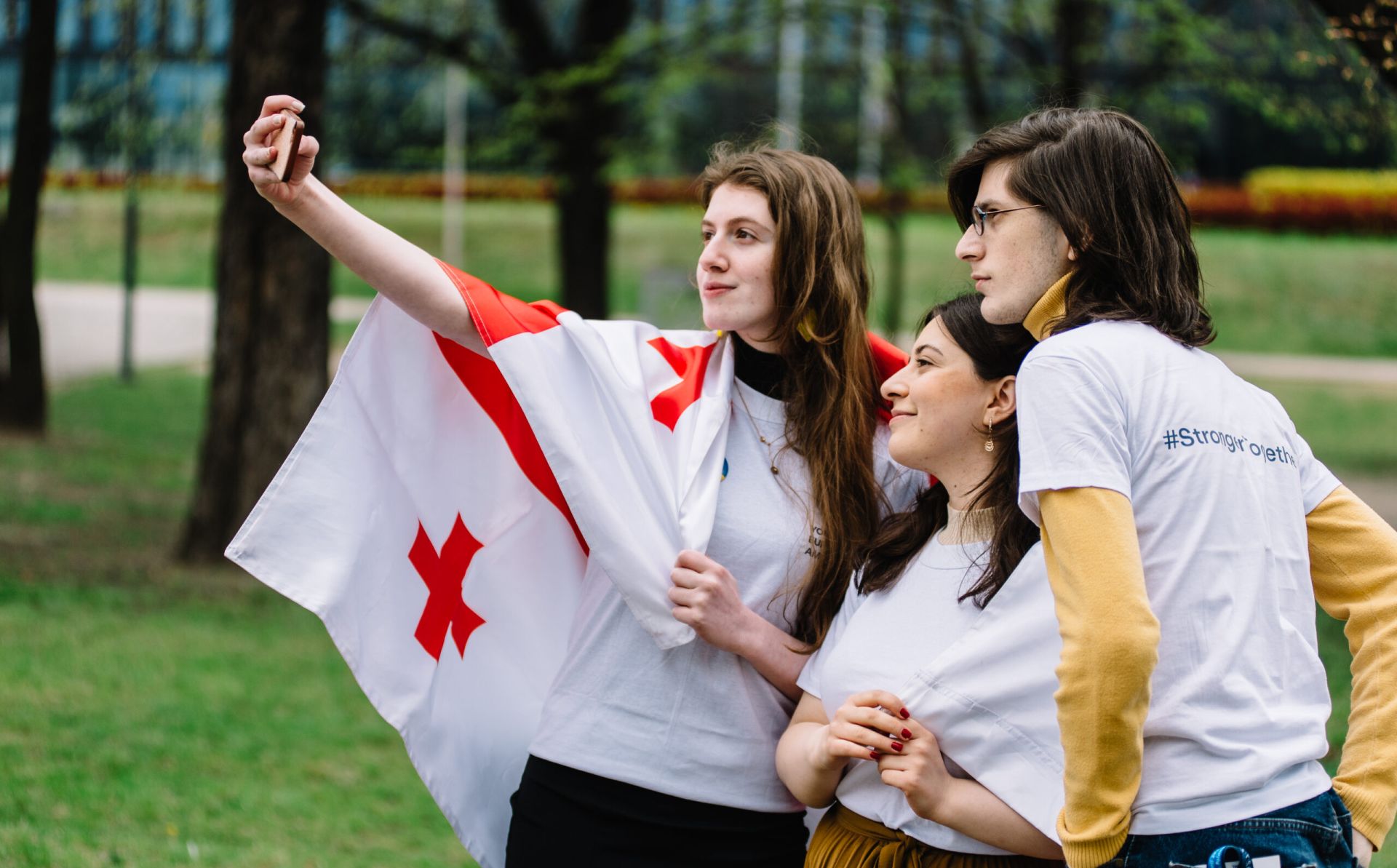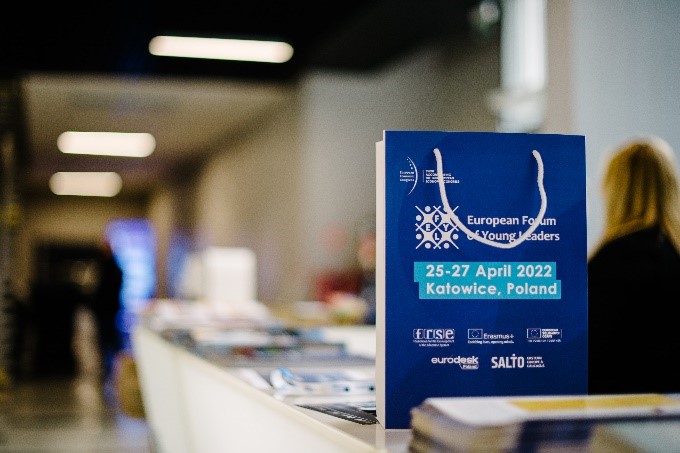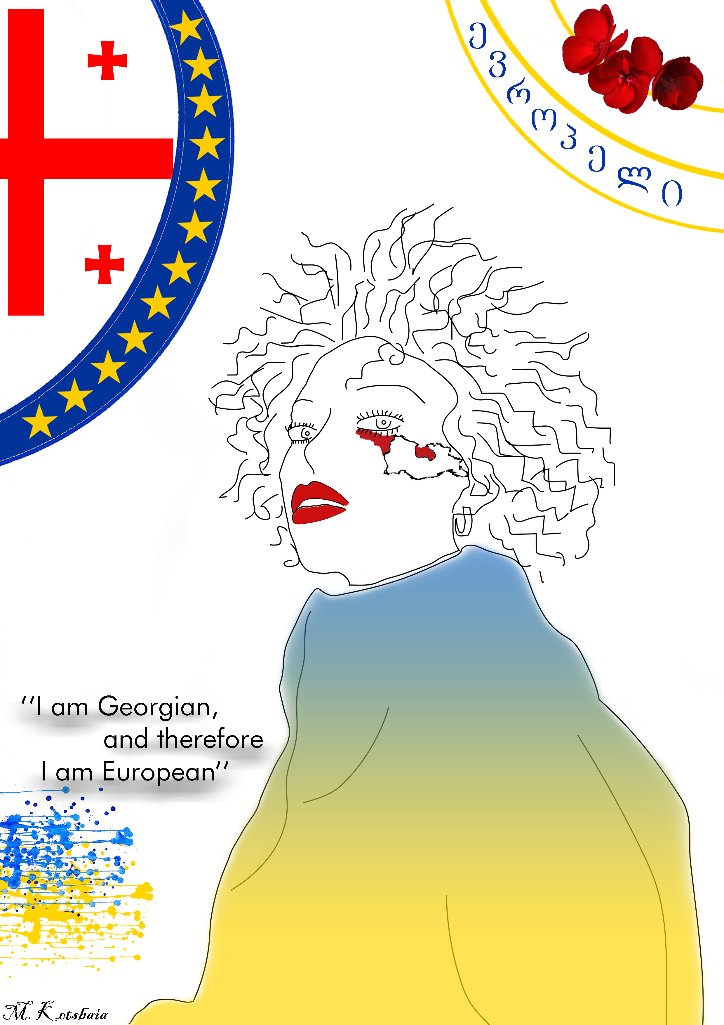
Blog: Looking ahead to our European future
We’re often asked where we imagine ourselves five or ten years from now and what our future might resemble. On rare occasions, we imagine something negative, far from what we had envisioned and the goals we’d set ourselves. I am a realist, and considering other possible outcomes of my efforts comes naturally. But the question is, when we share these projections with others, which one should we choose, the positive or negative one, and why?
As a Young European Ambassador from Georgia, I had the privilege to attend the first day of the European Economic Congress, and to represent the Georgian YEA network. During a session on ”Europe and the world in 2030”, we had the honour of listening to Mikuláš Dzurinda, President of the Wilfried Martens Centre for European Studies and Former Prime Minister of Slovakia (1998-2006). It was pleasant and hopeful to hear all the positive changes and improvements that can be achieved by 2030. These included the expansion of the European Union, the reduction of greenhouse gas emissions, and eight more resolutions.

I remember how happy I felt envisioning that future, and I think all those who attended must have felt the same. I’m sure that I was not the only one who thought that all these goals could be achieved, nor alone in believing that light would triumph over darkness, as it should. However, the feeling didn’t last for long. We were then presented with a version of harsh reality, a possibility that may unfold – Ukraine losing the war, countries leaving the EU and global warming reaching the point when we will be powerless to stop it. As the mood drastically changed in the audience, I began to think of how we could prevent it from becoming a reality. I knew we had the power, but did we have the will?
So far, we have made significant developments. Yet there are some steps we can and should take to ensure the lives of hundreds of thousands are not taken for granted. We need to guarantee that people lead their lives as free nations in democratic states and make sure that the quality of life in Georgia and other developing countries continues to improve.
Usually, when we are asked to hear the good or the bad news first, we choose the bad one, so the good can somehow eclipse it. Then why, why was this unpleasant version of our future presented at the end? Was there any meaning in the order? I cannot say for sure. Nevertheless, I know it had an impact on me. I was not blinded by what we would like to see, but staring at the possible brutal outcome. It proved once again the influence that words can have on society and how they motivate it. Afterwards, I was even more determined to do everything in my power to overturn such a scenario. Now the question is, are you?
As for the artwork, I created it for my high school graduation ceremony. We chose the first thing to draw on our white shirt, which is filled with motivational words and kind wishes at the end of the day. I had the idea of what I wanted to depict – the reality of Georgia that breaks my heart, my mind that always thinks about Ukraine, and the vision of the European future that is our fate, all turned into reality by you and me.

LATEST

How you can help the planet every day

Building Europe: Poland’s experience of joining the European Union and lessons for Ukraine

World Health Day 2024: My Health, My Right

EUREKA MEETS EUROPE – opportunities to develop and study. My experience

Can you wear pink in the workplace?
More campaign pages:
Interested in the latest news and opportunities?
This website is managed by the EU-funded Regional Communication Programme for the Eastern Neighbourhood ('EU NEIGHBOURS east’), which complements and supports the communication of the Delegations of the European Union in the Eastern partner countries, and works under the guidance of the European Commission’s Directorate-General for Neighbourhood Policy and Enlargement Negotiations, and the European External Action Service. EU NEIGHBOURS east is implemented by a GOPA PACE-led consortium. It is part of the larger Neighbourhood Communication Programme (2020-2024) for the EU's Eastern and Southern Neighbourhood, which also includes 'EU NEIGHBOURS south’ project that runs the EU Neighbours portal.

The information on this site is subject to a Disclaimer and Protection of personal data. © European Union,